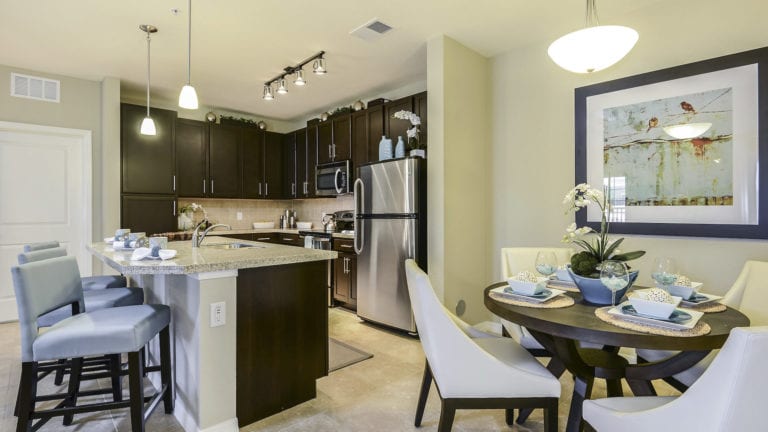Renting your first apartment is an exciting move, one that calls for careful planning and research. With this new lease on life comes significant responsibility. Rent is now your largest monthly expense and therefore, likely one of the biggest financial commitments you’ve made thus far. Before you head off into the great unknown of apartment living, here are three things to consider!
Calculate Your Budget
Determining how much rent you can realistically afford to pay is a crucial first step. A good rule of thumb is your rent should not exceed 30% of your take-home pay. This percentage can vary slightly based on lifestyle but is a good starting metric that will allow you to meet your other living expenses. Additional reoccurring expenses to consider include electric, water and home internet bills. These utilities can substantially increase your monthly payment to a rate you are no longer comfortable paying, even if you are technically capable. Generally, what is left of your disposable income will go towards entertainment and savings. Younger renters have more financial freedom to satisfy short-term goals, like renting the downtown apartment with a view.
Establish Credit
Property management companies use credit scores to determine the likelihood that a potential resident will pay their rent in full and on-time each month. Individuals with little to no credit give no information to go off and therefore can be treated like those with poor credit, incurring higher security deposits or being denied altogether. To avoid the pitfalls associated with less-than-ideal credit, open a few low-limit credit cards. Lower-limit credit cards will dissolve the temptation to spend money that you do not have. To efficiently optimize your score, spend only 10-20% of the credit available to you and pay off balances in full before the closing date. If falling into the credit card rabbit hole worries you, designate the card’s use to one expense a month such as gas or groceries.
Know Your Needs
The apartment you choose to call home will need to meet your basic needs before anything else. Individuals with cars will need to know any fees associated with parking as well as availability of spaces. Communities located in bigger cities where parking is scarce might have limits as to how many vehicles per-residence they have space for. On the flip side, those who do not own a car will need an apartment with good walkability or access to public transit. First time renters transitioning from mom and dad’s house to an apartment often come to realize they have more stuff than they have space. Communities that offer on-site storage should be a priority. If you are bringing along a furry friend, an apartment’s pet-friendliness is a non-negotiable.
Utilize these tips to help insure your first rental experience is a positive one!




